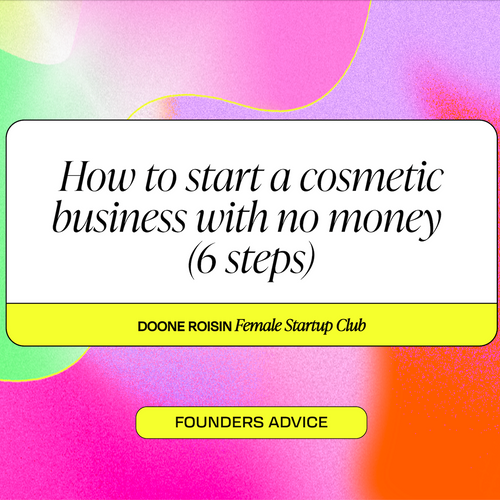
As a female entrepreneur, starting a business in Australia can seem daunting. But don't fret. I'm here to help you turn your dreams into a reality!
First things first, let’s get down to business. To start a business in Australia, you must understand the legal and financial requirements, find the perfect spot, and set up your business for success. Plus, you gotta learn the ropes of developing a business plan, getting funding, and building a rock-solid customer base.
This article will guide you through every step of the way, from understanding legal requirements to creating a killer business plan. And to make things easier for you, I've even put together a quick checklist of everything you'll need to make your business a success. Let's do this!
Developing a Business Plan
A business plan is crucial for female entrepreneurs starting a business in Australia.
A business plan helps you to:
-
Outline your vision for the business.
-
Determine how to achieve that vision.
-
Create a roadmap for the future.
-
Define your goals.
-
Measure success.
-
Gain financial support.
-
Prepare for challenges and obstacles.
If you're starting a new business, or if this is the first time you've written a business plan, it might feel overwhelming to create one from scratch.
Fortunately, many resources are available to help you create a business plan. A business plan template specifically for Australian companies can make the process easier. You can even find templates designed specifically for startups.
When writing a business plan, keep the following considerations in mind:
-
Target market
-
Competition
-
Resources and costs
-
E-commerce selling
-
Marketing strategy
-
Financial projections
-
Risk assessment
What Legal Requirements Are Needed To Start a Business in Australia?
If you're thinking of starting a business in Australia, there are a few legal requirements you need to know before you get started. Don't worry, though – I've got your back! Here's what you need to know.
First and foremost, you may need to register your business with the Australian Securities and Investment Commission (ASIC) or the Australian Taxation Office (ATO). Additionally, depending on your business type and location, you may need to obtain permits and licenses from various levels of government.
Here are some helpful tips to ensure your business can legally operate in Australia:
-
Make sure the business name is available and suitable. You can search and register a business name through ASIC's Business Names Register.
-
Register for an Australian Business Number (ABN). The ABN is a unique identifier for businesses used to report taxes, provide employee identification, and conduct business transactions, among others.
-
Create an LLC or corporation. Although LLCs and corporations require a significantly greater investment than their smaller counterparts, their structure can help mitigate liabilities associated with your business.
-
Consider tax obligations. Make sure you're aware of the procedures for filing and paying taxes as laid out by the ASIC or ATO, whichever is applicable.
How Much Does It Cost To Start a Business in Australia?
Typically, you can expect to pay 400 AUD (roughly 282 USD) to start a business in Australia. However, the actual cost depends mainly on the type of business you are starting.
Some of the main costs that female entrepreneurs need to consider include:
-
Legal costs.
-
Product development.
-
Sales and marketing.
-
Employee compensation.
-
Administrative costs.
-
Lease (if you're using a physical office outside your home).
-
Inventory management (if you're offering a business that sells physical merchandise rather than services).
Checklist for Starting a Business in Australia
To make your life easier, we've put together a handy checklist of things to consider:
- Nail a solid business plan. What does your business provide? Who is your target market? How will you make money? Answering these questions will help you create a clear vision for your business.
- Ensure you have the necessary funds. This could mean taking out a loan, seeking private investors, or bootstrapping.
- Register your business with the local, state, and federal governments. This will help you get the necessary licenses and permits.
- Hire the right people. This means finding a team of dedicated, knowledgeable employees who will help you make your business a success.
- Have a backup plan. Many businesses fail within the first few years of their inception. Although you shouldn't be too pessimistic about your company's prospects, it may be a good idea to have a fallback if things don't pan out how you want them to. Alyce Tran (the founder of The Daily Edited and, more recently, In The Roundhouse) shared a great insight on this on Female Startup Club recently. Never put all your eggs in one basket because you will feel those lows even more intensely when they undoubtedly come.
Final Thoughts
As a female entrepreneur, taking the first steps toward starting a business in Australia can be incredibly intimidating.
With all the regulations, paperwork, and other considerations, it can be more than overwhelming to even know where to begin. But hey, don't sweat it! With the proper guidance and information, you’ve totally got this.
If you liked this article and you’re looking for more of this kind of *hype* in your life, you would absolutely love our weekly Female Startup Club newsletter that goes out every Monday.



